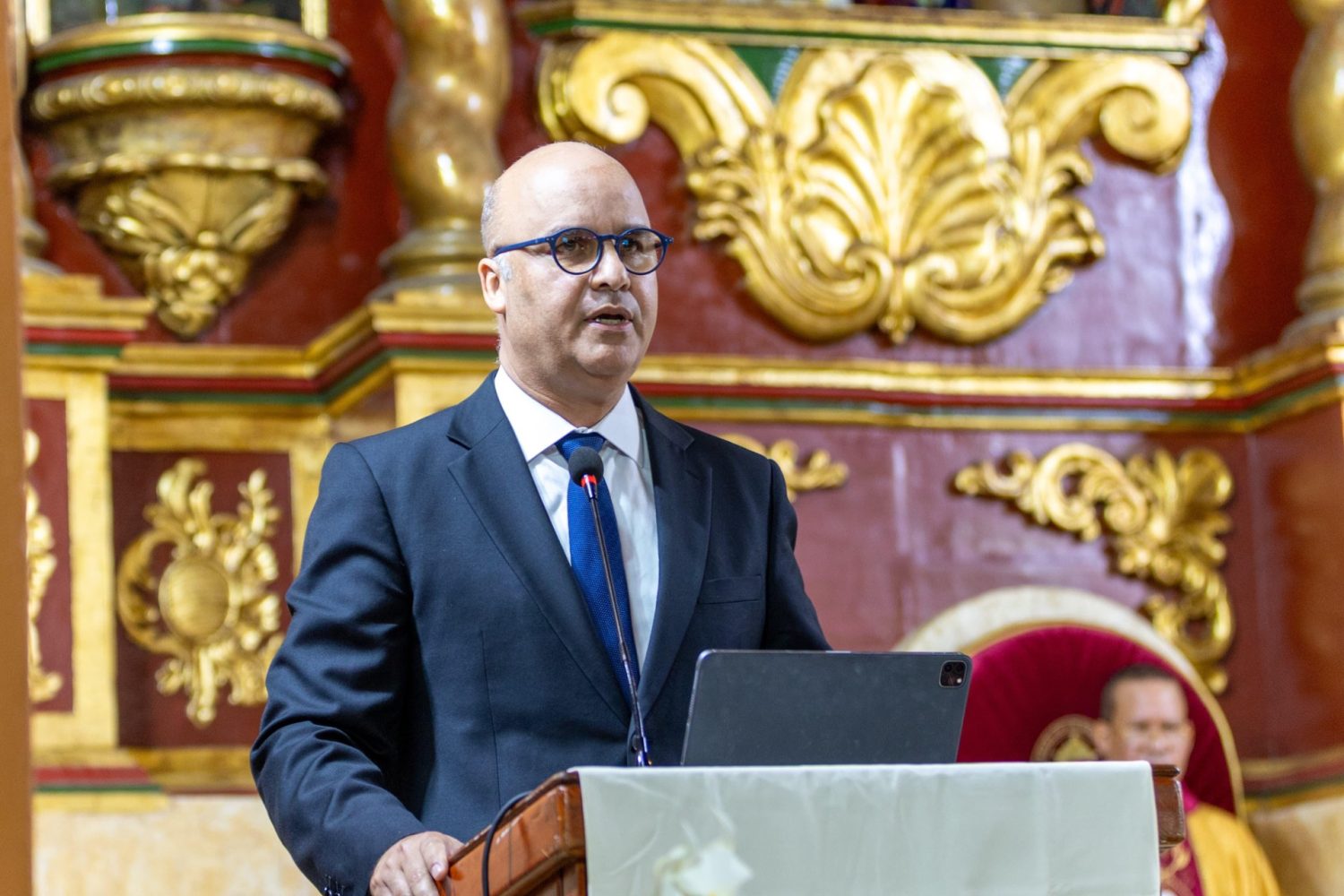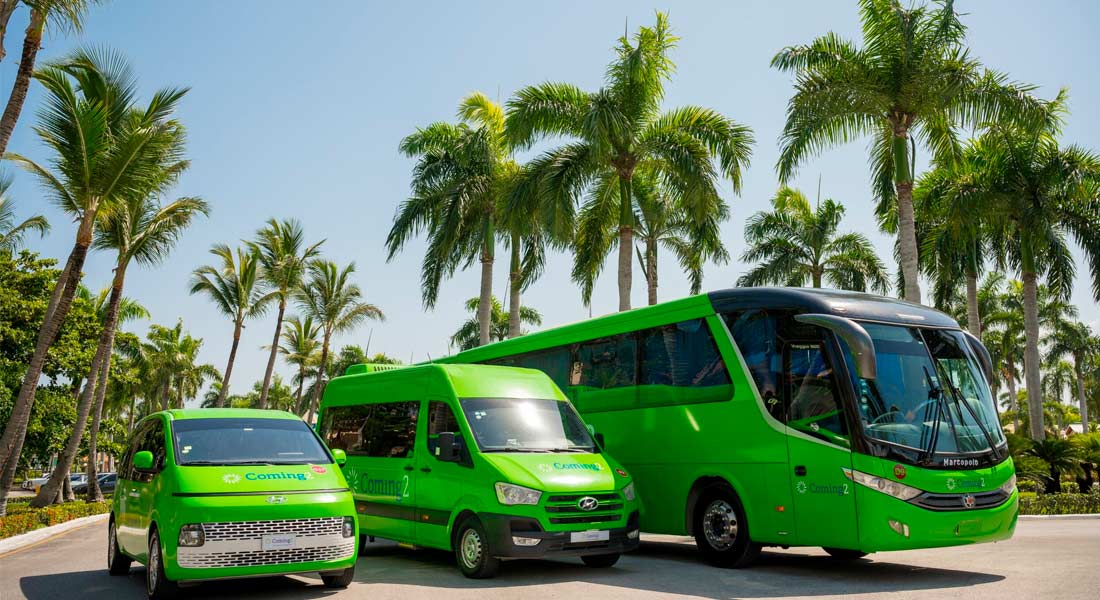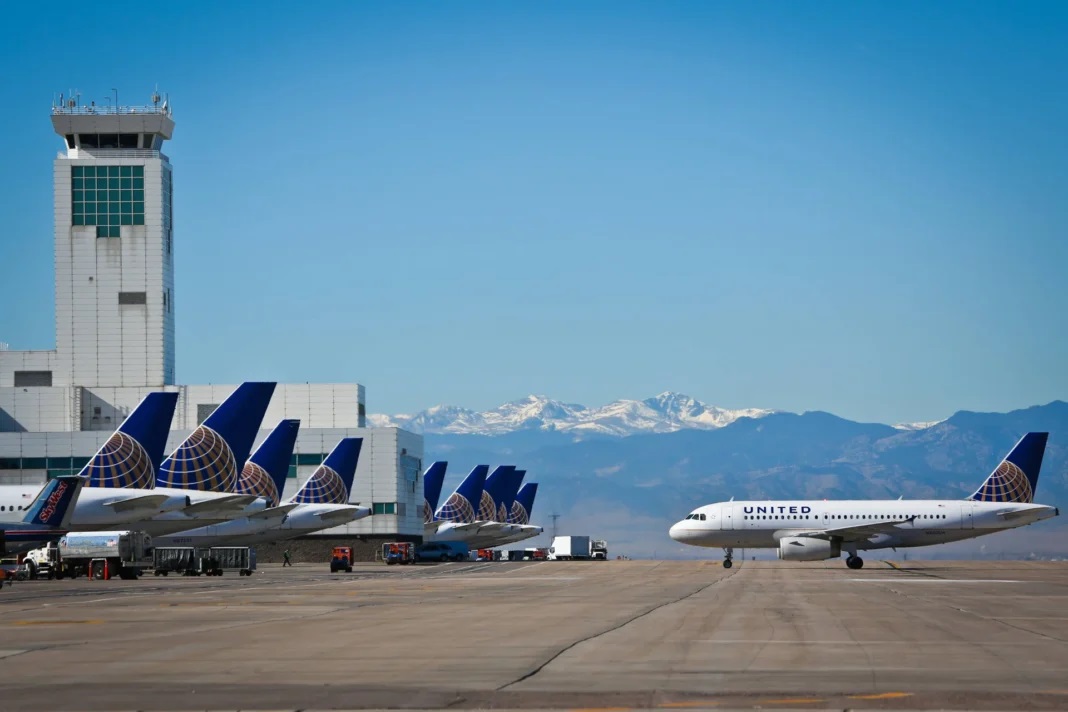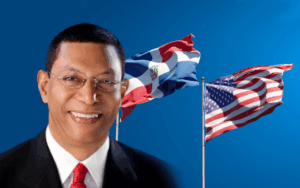“There is a large amount of Dominican capital entering the tourism sector”
Santo Domingo—”The business model in the Caribbean hotel sector is increasingly diverse. Before, they were large family hotel companies with tradition and experience in tourism with hotels 100% owned and operated by themselves. Now we are seeing the emergence of non-hotel investors entering into management and operating agreements with tour operators or major international brands. In addition, we are seeing a large number of Dominican investors introducing their capital in this sector,” said Juan Manuel Martín de Oliva, vice president of the tourism area of Banco Popular Dominicano, in an interview with arecoa.com.
Martín de Oliva, who will receive the arecoa.com award at Fitur 2024 for his career in the Dominican tourism sector and his significant contributions from the position he holds at BPD, the leading private bank in the financing of tourism projects, revealed to this digital newspaper fundamental aspects about the development of the DR tourism industry and the promising future of this sector.
What do you feel most satisfied with in your career, and who would you highlight as your primary references during this time?
My foremost satisfaction is that, together with the rest of the team, we have positioned Banco Popular as the undisputed leader in service to the tourism sector. Being called and recognized as “the tourism bank” is a source of pride and responsibility that moves us to improve daily. Having received recognition from various institutions in the sector, such as Asonahores, different Tourism Clusters, the Ministry of Tourism, and the UNWTO, among others, are reviews that motivate us even more to support this critical and transcendent sector for the country’s economy.
The primary references are undoubtedly my colleagues at Banco Popular from whom I learn every day, the top executives of the bank who, with their example, support the initiatives that we as a tourism team propose and, of course, as a north, I have the thousands of families who live from this sector and who show their pride in every visit I make to the different companies in the industry.
What have been the most significant difficulties you have overcome to create a tourism banking division of your current weight?
I would speak of challenges more than difficulties because we constantly innovate at Banco Popular. Since we created the first vice-presidency of the tourism sector in a bank, maintaining our position as leaders in financing and service to the industry, and many other initiatives that we have pioneered, we have had to face the necessary challenges to grow. Fortunately, our clients have been very generous with us and have given us support for all these initiatives, which, in the end, is what is essential because they are our reason for being.
Where do you see the most significant potential among Dominican destinations to stand out as the fastest-growing new hotels?
“The Dominican Republic has it all” is a reality, so fortunately, we have a lot of potential in large areas to explore, and not only on the beach, we have a lot of potential in health, mountain, and adventure tourism, among others. But we are certainly seeing growing areas, such as Miches, Bergantín, Pedernales, etc… However, when it comes to expansion, I see it not only as an increase in beds but also as an increase in quality. So we have areas like Bávaro, Punta Cana, and Uvero Alto that have many hotels in a continuous effort by investors to adapt to the ever-increasing quality demanded by tourists.
And where do you appreciate it among the rest of the main destinations in the Caribbean, and why?
I wouldn’t say I like comparisons because each destination has its strengths. However, it is indisputable that we have created an optimal environment in the Dominican Republic since tourists seek stability and security. In our country, they find social, political, economic, and exchange stability, and tourists feel safe. This fact makes the demand grow, encouraging investors to create sustainable and long-term investments that, in turn, help with this stability. All this generates a virtuous circle that supports our growth to be constant and exponential.
What main variables do you value most when financing a tourism project with greater or lesser emphasis?
Here, I come back to the subject of the team; at Banco Popular, we support each other to achieve the success of our clients’ hopes and dreams. We have a Credit Analysis area that perfectly understands the tourism sector, and we do not limit ourselves to approving or declining; we are proud to advise our clients through our Investment Banking Area. I always remember that we are not a transaction but a relationship bank.
When we evaluate a project, the client’s experience is significant, and they have a clear business plan so we can adapt to each one. Each transaction differs from the previous one and will vary from the next one. And, of course, we support those who believe in their project by assuming their share of the risk.
To what do you attribute the fact that the leading investors in the region have been Spanish despite the challenge of an ocean in between?
The Spanish people have always been immigrants and hard workers with a vision to explore new worlds, and that is in their blood. Among the Spanish people we reviewed in the past, practically all of them were Mallorcans, and they already came with a great experience of tourism. At Banco Popular, we have supported tourism for more than three decades; precisely 25 years ago, we already foresaw the importance of this sector in the country’s economy. As a result of this vision, 25 years ago, we signed an agreement with a Spanish bank with deep roots in Mallorca to bring the best practices of how to attend to these Spanish investors and show them that we could provide a service and attention according to their needs. As a result of this agreement, I came to join this great family, Popular.
What are the keys to a hotel product that will be more successful than others in the future?
Undoubtedly, one that shows sensitivity to sustainability and takes care of the environment, involving the nearby communities in the hotel’s business success. Today’s young client are increasingly looking for integration into the destination with experiences that bring them closer to the communities to take away a memory of experiences that will last in their memory.
Fortunately, in the Dominican Republic, many hoteliers have had this philosophy for a long time and are very busy developing and preserving this model.
What changes in the financial situation do you think will make it even easier to increase investment with lower-interest loans?
The monetary authorities in our country are giving unquestionable support to investment, which allows us financial institutions to serve our clients under the best conditions. The Government, through tax incentives, is also supporting this growth. So, I understand that by continuing on this path, we can transmit to the client an adequate interest rate and conditions and structures in line with their business plan demands. An example is Dominican banks’ significant growth of financing to the tourism sector, where Banco Popular continues to be a pioneer, financing close to 39% of the total portfolio destined for this sector in the country.
In what virtues would you concentrate the contribution of tourism banking divisions as key to promoting tourism projects?
I understand that in the knowledge of the sector. Having an area like ours, where we are not only dedicated to providing loans or managing clients’ resources but also participate as members of the Hotel Association, the Clusters, and other associations linked to tourism, gives us an experience and knowledge that allows us to provide much more value to our relationship with investors.
Do you consider that Spanish banks have given as much share and priority to hotel financing as entities such as yours do?
I have the impression that Spanish banks know the tourism sector very well, and at Banco Popular, we have had excellent relations with Spanish entities with great success. Large hotel companies require a large amount of capital to be able to develop their investments, and being able to count on banks like ours allows them to use the resources of their Spanish banks to build hotels in those countries where financing could be more complicated than in the Dominican Republic, and that is where we come in to complement their needs.
What would be the ideas that, in your opinion, would have the most significant impact on improving the complementary offer of the destinations?
The infrastructures in the different destinations are vital in developing the complementary offer. We have experienced this in the East with the Coral Highway, shared with the cruise ports in Puerto Plata.
The contribution of Banco Popular and the rest of the banks in the system to small and medium entrepreneurs is also critical to the growth of this complimentary offer. I encourage continuing this policy of growing large infrastructures that generate an adequate and orderly environment for this development.
What is the outlook for the succession of the leading family vacation chains?
Promising and excellent, without a doubt. The 100% of the examples we see in all the chains augur well. In addition, as they are large but family chains, we know how the new generations have been involved in the business from a very young age, as they have experienced it in their homes. If there is a common denominator among hoteliers, it is passion, and they have taken that characteristic home with them and passed it on from generation to generation.
We are seeing generational replacements that do not need a period of maturation to get to know the business but are being a continuity of it, and in most cases, with the support and support of those first generations of fighting, persevering, passionate and visionary men and women who have generated a breed of hoteliers who are undoubtedly proud of their descendants.
How would you quantify the value of the specialized press in defending the sector and enhancing its voice?
I like to end with this question because it allows me to leave in the reader’s memory the importance and relevance of the press in the success of tourism in our country. The tourism press has been, and will continue to be, a necessary traveling companion since it makes known the successes and reminds us of what is not so good, thus allowing us to correct along the way. But it is undoubtedly a protagonist and indisputable ally of the growth of tourism. It can feel very proud that with its invaluable help, the Dominican Republic is today at the top of tourism worldwide.





